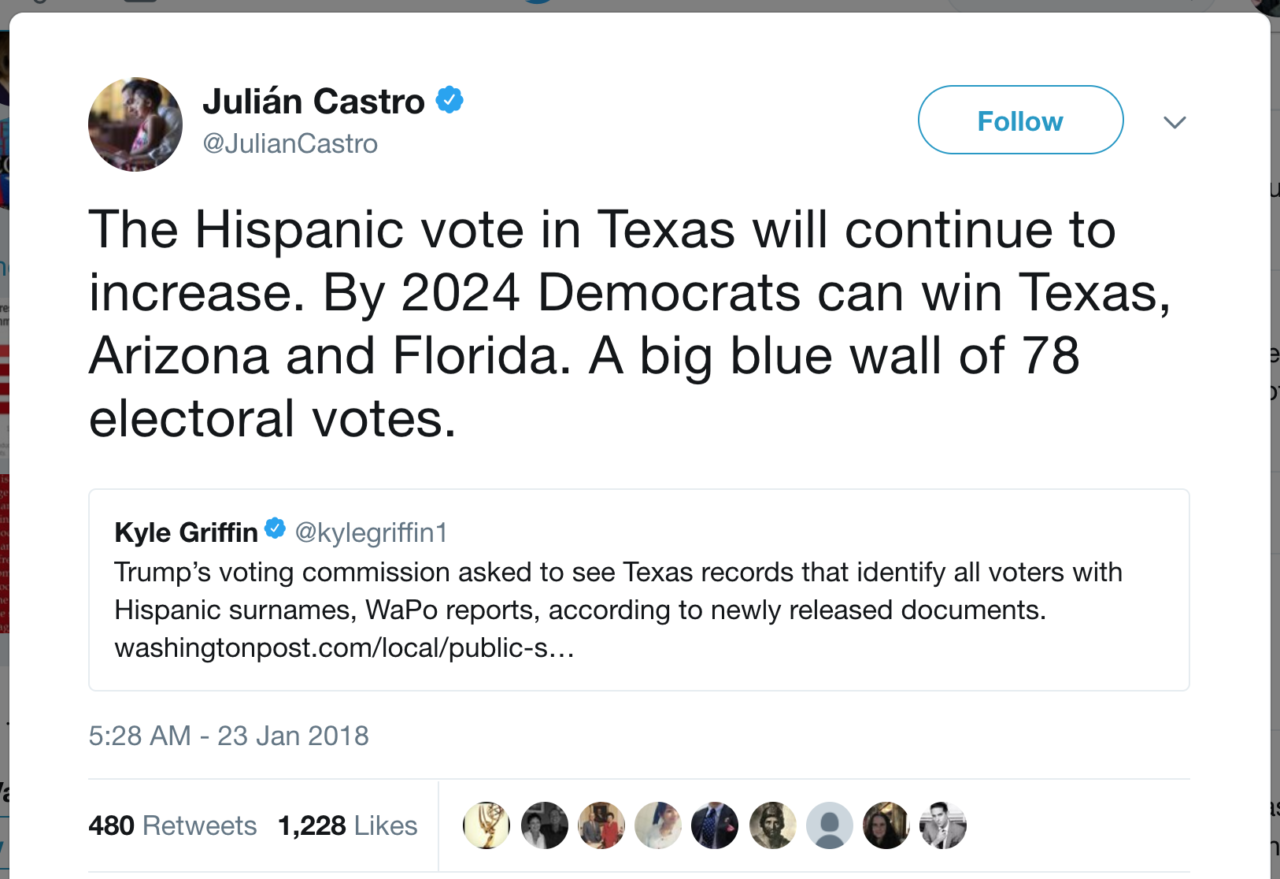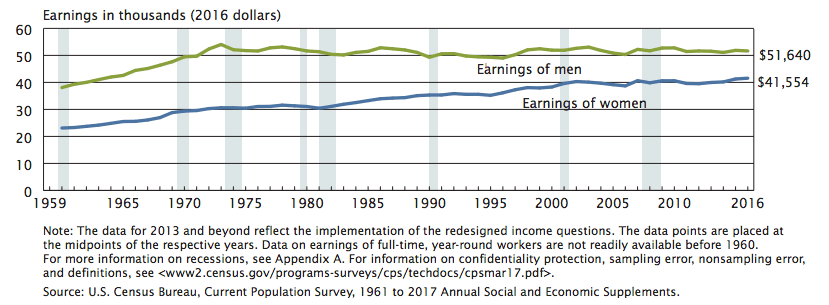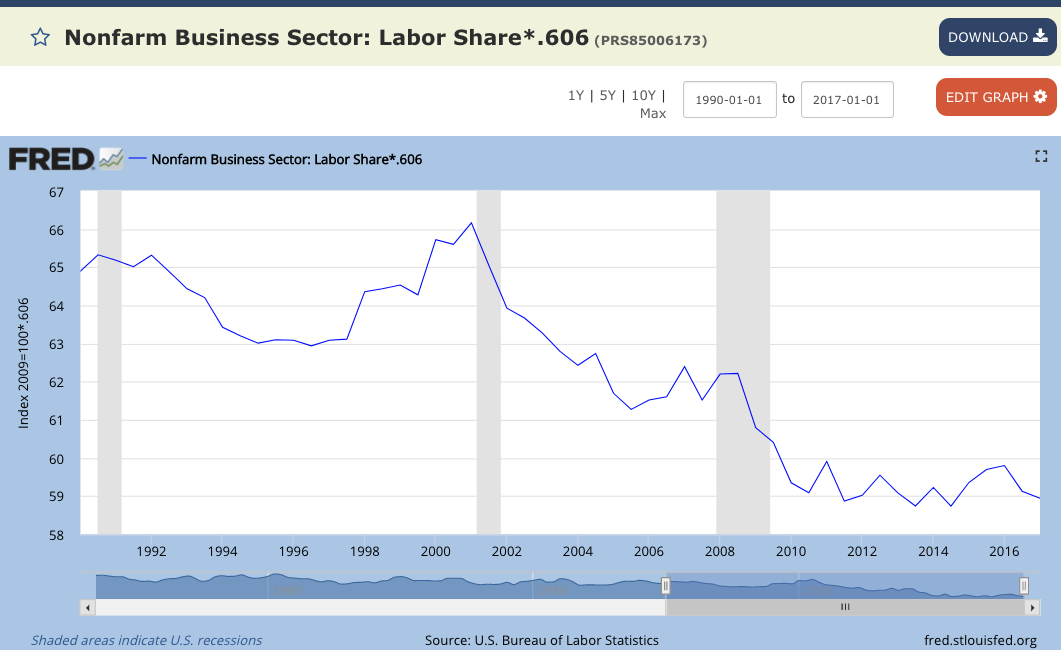Marc Short: White House Is ‘Anxious’ To Deliver Big Amnesty to Democrats
The administration is anxious to win Democratic approval for an amnesty, says former Never-Trump leader Marc Short, who is now working as President Donald Trump’s chief outreach aide to Congress.
“Chris, we’re anxious to get a deal,” Short told Fox News Sunday on January 28 before explaining why the administration rapidly caved to Democratic demands for bigger amnesties of illegal-immigrant workers, from 690,000 to 1.2 million, then to 1.5 million, then up to 1.8 million.
We started by saying we want to protect the 690,000 people who have permits under DACA, meaning people age 16 to 36, who have work permits who are in this country, producing, contributing to our economy. We, of course, want to protect them. We don’t want to send them away.
But Democrats said that population should be larger. We should consider those who are eligible but were afraid to apply. We should also go back to 2012, which is when [President Barack] Obama put in place his unconstitutional order ….
We’ve been trying to get a deal.
Under the Short’s amnesty proposal, all migrants who can persuade agency officials that they arrived in the country by 2012 before they were adults, and are aged 37 or younger, will get the huge prize of residency and citizenship in the United States.
Short and other administration officials estimate the number to be amnestied will be 1.8 million — but the pending legislation does not set an upper limit, nor an ending date, nor does it set any incentives for the agency to resist business pressure to maximize the inflow of amnestied workers and consumers. The 1986 amnesty showed that far more people were given green cards than predicted by Congress, suggesting that a 2018 amnesty for an estimated 1.8 million could produce an amnesty for 4.5 million illegals.
That huge inflow of workers is greater than the roughly 4 million young Americans who will join the workforce in 2018, and would likely suppress Americans’ wages during the current economic boom.
Short’s confessed anxiousness for a deal violates one of the rules in President Donald Trump’s bestseller, The Art of the Deal,:
The worst thing you can possibly do in a deal is seem desperate to make it. That makes the other guy smell blood, and then you’re dead.
Amid Short’s anxiousness for a deal, President Donald Trump appeared to equivocate on Saturday night by describing the amnesty offer as a tool to display the GOP’s good-faith and the Democrats’ political cynicism.
I have offered DACA a wonderful deal, including a doubling in the number of recipients & a twelve year pathway to citizenship, for two reasons: (1) Because the Republicans want to fix a long time terrible problem. (2) To show that Democrats do not want to solve DACA, only use it!
— Donald J. Trump (@realDonaldTrump) January 28, 2018
Trump is expected to give his State of the Union on Tuesday night and may endorse the huge amnesty, or perhaps cite the political gridlock over amnesty to make it the central issue of the 2018 midterm election. That option would clear the issue off his desk, and force Democrats to tell ordinary voters why they should welcome millions of competitors for the jobs slots, school seats, and taxpayers’ dollars that could help their children.
The amnesty is very unpopular. A January 28 Breitbart report noted that blacks are particularly opposed to mass-immigration:
According to a detailed Harvard-Harris poll, black Americans are more likely than any other demographic group to support cutting yearly legal immigration levels down to a fourth of current immigration levels.
When asked, “In your opinion, about how many legal immigrants should be admitted to the U.S. each year,” 48 percent of black Americans said they would like to see between only one and 250,000 legal immigrants brought to the U.S. a year.
Trump, Short, and other officials have justified the amnesty by saying it would end chain migration and the visa lottery. But the bill would allow all 4 million people on the chain-migration waiting list to end the United States over the next 15 years.
During the 2016 primaries, Short worked for the pro-amnesty Koch Brothers. According to a May 2061 report by National Review:
On a frigid Tuesday in February, a team of top political operatives from the Freedom Partners Chamber of Commerce, the umbrella group that controls political activities for the sprawling donor network led by billionaire industrialists Charles and David Koch, arrived in Kansas for a meeting that they hoped would turn the tide of the presidential campaign.
They’d set aside $150 million to spend on paid media alone, to be spread across campaigns at the federal, state, and local levels. Yet they had not been authorized to spend a dime on the White House race.
Marc Short, then president of Freedom Partners, wanted to change that. He led a faction inside the Koch network that had become convinced of the need to neutralize Donald Trump before his momentum made him unstoppable. Fresh off Trump’s landslide victory in New Hampshire one week earlier, and staring down another likely Trump win in South Carolina that Saturday, Short and his lieutenants had come to Wichita to present Charles Koch with a detailed, eight-figure blueprint for derailing the Republican front-runner on Super Tuesday, when eleven states would vote. They hoped to get the green light to hammer Trump with ads in the states where he was most vulnerable.
Short’s later joined Sen. Marco Rubio’s campaign for President.
Since Trump’s election, the Koch brothers have upped their support for a 2018 amnesty — and are also opposing any compensating cutbacks to legal immigration.
Plus, the Koch Brothers’ Network lays out its immigration policy: Likes Trump’s framework as a starting point but concerned about proposed cuts to legal immigration. =>>> https://t.co/18i9MlyU4s
— David M. Drucker (@DavidMDrucker) January 27, 2018
Koch Network official: “We think that addressing the plight of dreamers should be a top priority for the country.”
— David M. Drucker (@DavidMDrucker) January 27, 2018
In fact, Short’s amnesty bill also may abort pending wage raises due before GOP politicians face the voters in November, especially in low-unemployment states, such as Minnesota or Virginia. Currently, many employers are offering one-time bonuses to keep their employees at work but will have to start offering permanent raises if they give up hope for a new wave of immigrant labor.
Widespread pay raises in 2018 could be a strategic disaster for business groups because they would decisively show the public how mass immigration has cut their wages, despite many denials by business-funded economists.
A near-final version of the draft amnesty provided to Breitbart News says that the Department of Homeland Security would be forbidden from deporting illegals until they apply for the amnesty. The rule would encourage many migrants to fly, drive or walk nto the United States during the 2018 election season seeking the chance of winning American residency.
Many Democrats are supporting the Koch-backed Trump amnesty because think it will import more voters for them to win Texas, Florida and other states.
Four million Americans turn 18 each year and begin looking for good jobs in the free market.
But the federal government inflates the supply of new labor by annually accepting roughly 1.1 million new legal immigrants (including roughly 750,000 working-age migrants), by providing work-permits to roughly 3 million resident foreigners, and by doing little to block the employment of roughly 8 million illegal immigrants.
The Washington-imposed economic policy of economic growth via mass-immigration floods the market with foreign labor, spikes profits and Wall Street values by cutting salaries for manual and skilled labor offered by blue-collar and white-collar employees. It also drives up real estate prices, widens wealth-gaps, reduces high-tech investment, increases state and local tax burdens, hurts kids’ schools and college education, pushes Americans away from high-tech careers, and sidelines at least 5 million marginalized Americans and their families, including many who are now struggling with opioid addictions.
The cheap-labor policy has also reduced investment and job creation in many interior states because the coastal cities have a surplus of imported labor. For example, almost 27 percent of zip codes in Missouri had fewer jobs or businesses in 2015 than in 2000, according to a new report by the Economic Innovation Group. In Kansas, almost 29 percent of zip codes had fewer jobs and businesses in 2015 compared to 2000, which was a two-decade period of massive cheap-labor immigration.
Because of the successful cheap-labor strategy, wages for men have remained flat since 1973, and a large percentage of the nation’s annual income has shifted to investors and away from employees.








Comments are closed.